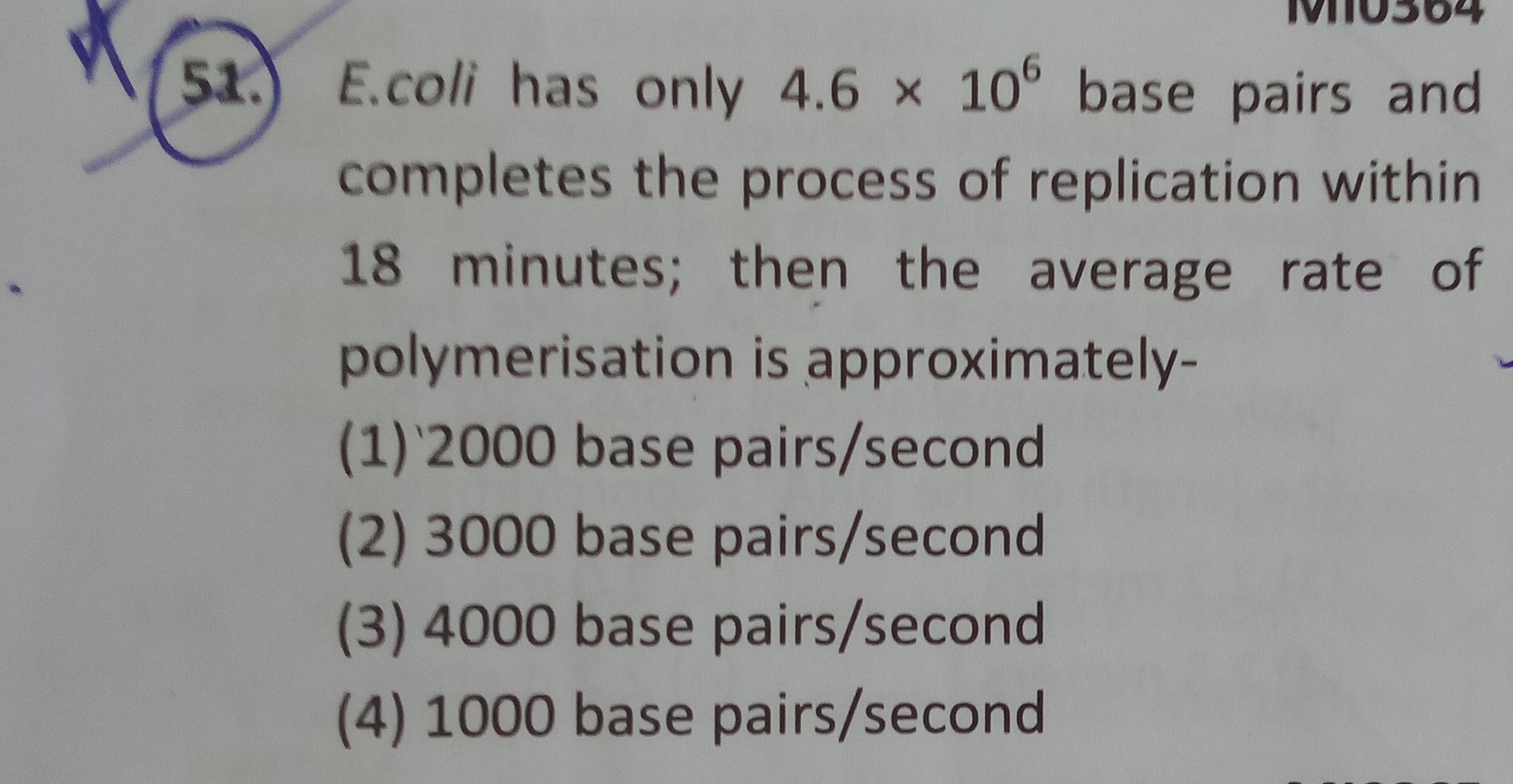Question
Question: E.coli has only 4.6 x $10^6$ base pairs and completes the process of replication within 18 minutes; ...
E.coli has only 4.6 x 106 base pairs and completes the process of replication within 18 minutes; then the average rate of polymerisation is approximately-

2000 base pairs/second
3000 base pairs/second
4000 base pairs/second
1000 base pairs/second
2000 base pairs/second
Solution
The E. coli genome has 4.6×106 base pairs and replication is completed in 18 minutes. First, convert the time to seconds: 18 minutes×60 seconds/minute=1080 seconds. Since DNA replication is bidirectional, there are two replication forks working simultaneously. The average rate of polymerisation per fork is calculated by dividing the total number of base pairs by the product of the number of forks and the time taken: Rate = Number of forks×TimeTotal base pairs=2×1080 s4.6×106 bp=21604.6×106 bp/s≈2130 bp/s. This value is closest to 2000 base pairs/second.
